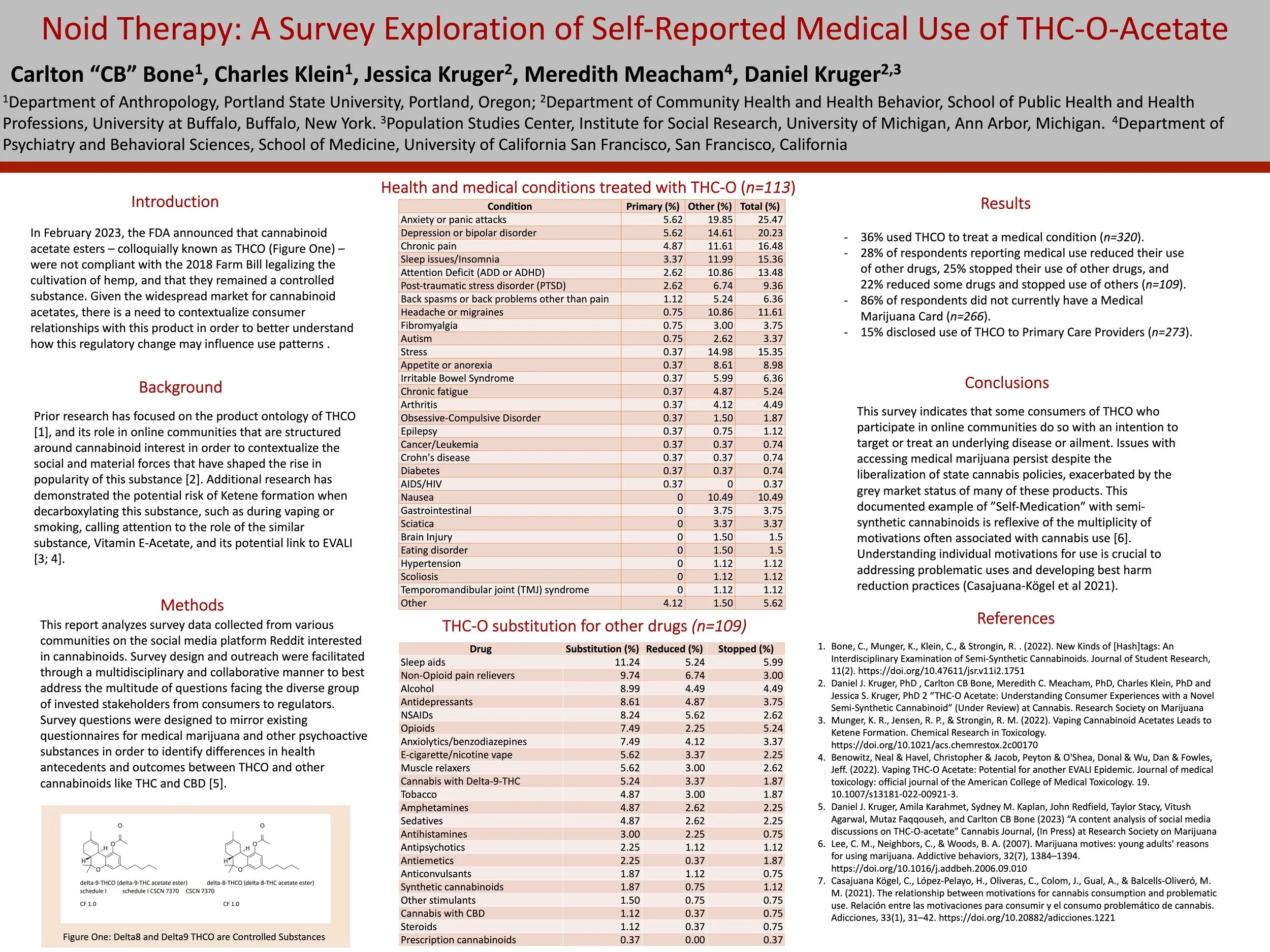Noid Therapy: A Survey Exploration of THCO Medical Use
This poster was shared at the 2023 CCORC Conference in South Florida.
Co-Authors: Jessica Kruger1, Daniel Kruger2, Meredith Meacham3, Charles Klein4, Kaelas Munger4, Robert Strongin4
1University at Buffalo, SUNY 2University of Michigan 3University of California San Francisco 4Portland State University
Introduction
In February of 2023 the FDA announced that cannabinoid acetate esters – colloquially known as [Delta-8 and Delta-9] THCO – were not compliant with the 2018 Farm Bill and that they remained a controlled substance. Given the widespread market for cannabinoid acetates, there is a need to contextualize consumer relationships with this product.
Background
Prior research has focused on the product ontology of THCO, and its role in online communities that are structured around cannabinoid interest to contextualize the social and material forces that have shaped the rise in popularity of this substance. This study seeks to explore the use of THCO for medical purposes.
Methods
This report analyzes survey data collected from various communities on the social media platform Reddit interested in cannabinoids. Survey design and outreach were facilitated through a multidisciplinary and collaborative manner to best address the multitude of questions facing the diverse group of invested stakeholders from consumers to regulators. Survey questions were designed to mirror existing questionnaires for medical marijuana and other cannabinoid interventions to identify differences in health antecedents and outcomes between THCO and other cannabinoids like THC and CBD.
Results
Results are still being analyzed the initial results suggest that (n=320) there is a clear indication of users self-report consuming THCO for medical reasons, while also highlighting an acute awareness of potential short- and long-term harms associated with use as well as a desire for greater research into the specific respiratory and cardiovascular risks associated with THCO.
Conclusion
THCO has similar perceived medical benefits to botanical cannabinoids found in cannabis, and consumers self-report use strategies that mirror those for THC. Limitations with these results derive from the nature of online survey research compounded by the dynamic nature of THCO products and markets.
Discussion
The implications for the regulatory shift surrounding THCO have yet to be fully realized but how consumers utilize THCO for medical purposes is an important area of future research. Physicians and researchers should be aware of the potential medical use of THCO amongst patients and research cohorts while trying to distinguish what specific cannabinoids may be consumed when conducting observational research.
